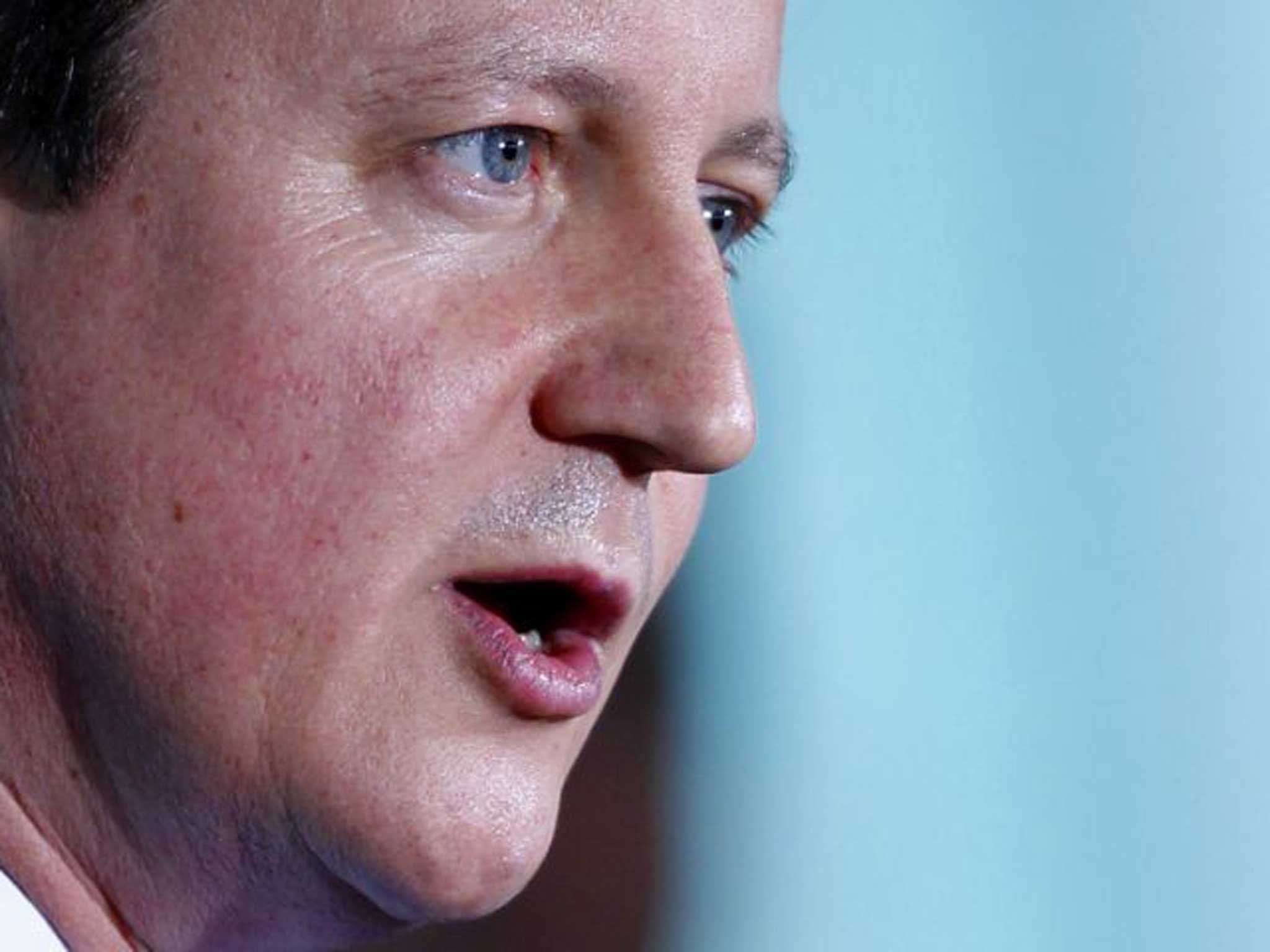With no EU reform, will David Cameron ditch the vote on membership?
Even if Angela Merkel wanted to, she cannot rewrite an EU treaty if Malta says no


That went well, then. Nick Clegg's great plan to regain some of his party's lost support by challenging Nigel Farage to public debate has helped to lift the UK Independence Party to a record 20 per cent in our ComRes opinion poll today, while the Liberal Democrats touch bottom on 7 per cent.
As Bill Bailey, the comedian, commented, it is beginning to look as if all that will be left of the Lib Dems after the general election will be "a bunch of flowers taped to some railings". But the Ukip surge is almost as bad for the Prime Minister as it is for his deputy.
It looks as if Ukip will win the European Parliament elections next month. The Conservatives know they are going to come third, but they are treating this as a dress rehearsal for the general election. A new campaign last week said Labour "won't" give you a say on Europe, Ukip "can't" and only the Conservatives "can and will".
David Cameron believes that, if his party holds its nerve, the fundamentals are in his favour. Too many of the "Tory tribe" treat European elections as a "weekend retreat" where they can let their hair down, he thinks, but then they will sober up and face the choice of a general election. That is, him or Ed Miliband as prime minister.
When it comes to that choice, Europe will be less important. That will be a contest, as our poll today suggests, between people feeling worse off than at the last election and preferring George Osborne to Ed Balls to handle the future. But Europe still matters. And, as a matter of policy rather than protest, Cameron's position is in the centre ground of public opinion.
Ask people a straight question about whether they want to stay in the EU or leave, and opinion is evenly balanced. Since the eurozone crisis abated, the majority for leaving has shrunk. But since Cameron set out his promise in January last year to renegotiate Britain's terms of EU membership and to hold a referendum on the result, that position has been the most popular. Millions of people readily tell opinion pollsters they want out, and then turn on a pre-decimal sixpence when asked how they would vote if Cameron negotiated new terms and recommended them. The hypothetical question says nothing about what those new terms might be – just that they are new and the Prime Minister has recommended a Yes vote.
Cameron's position seems popular and strong. As a negotiating tactic, threatening to leave the EU has a certain logic, even if Cameron says he would rather stay. "They don't want to lose Britain," says a No 10 source. "Angela Merkel does not want to be running Club Med."
Recently, Cameron has won allies in Germany, Sweden, Denmark and the Netherlands for restricting social security benefits for workers from other EU countries. With the arrival of two prime ministers who have been compared to Tony Blair – Matteo Renzi in Italy and Manuel Valls in France – Cameron might be tempted to think that the British model of reform is sweeping the Continent.
But no. There is a big problem with his plan for a referendum. Merkel was blunt when she visited in February, saying that those who expected her to "pave the way for a fundamental reform of the European architecture" were "in for a disappointment". The problem is that all 27 other countries would have to agree to rewrite the EU treaties. Even if Merkel wanted to, and although she is the most powerful woman in Europe, she cannot do it if Malta says no. Not that it would be Malta. But the next French presidential election is in 2017: no candidate there would want to be seen to be yielding to British demands to change Europe's course.
In his speech last year promising a referendum, Cameron said "we would be much more comfortable" if the EU treaty specifically said that "ever closer union" was not Britain's objective. Some senior civil servants were uneasy about the idea of rewriting treaties. I understand that, when the files are opened in 2033, under the 20-year rule as it will become, they will show that these reservations were recorded, something that never happened over Iraq.
Cameron is not going to get what he says he wants. If he is still prime minister after the next election, therefore, he will face a terrible choice. He will have to hold a referendum on a set of non-treaty reforms that fall well short of what he set out to achieve, and risk losing it. Or he will have to postpone the referendum and let his successor sort out the mess.
Cameron's view is blithe to the point of reckless. One adviser summarises it thus: "Is it tricky? Yes. Is it difficult? Yes. It is impossible? No."
I once thought the idea that Cameron would renege on the promise of the referendum was a Ukip conspiracy theory. I now wonder if that is not precisely what will happen if he wins the next election. That would be a disaster for trust in politics.

Join our commenting forum
Join thought-provoking conversations, follow other Independent readers and see their replies